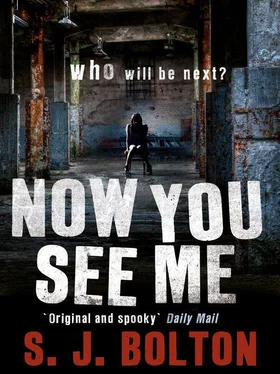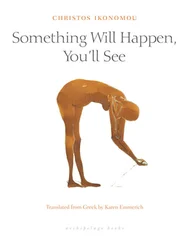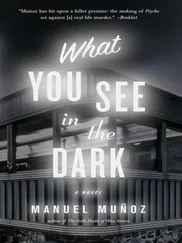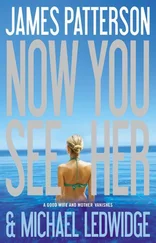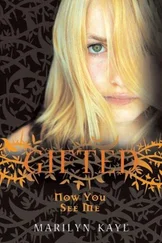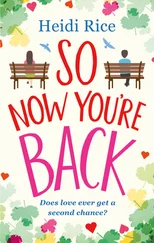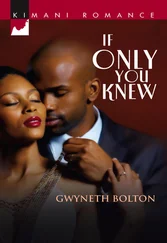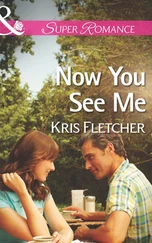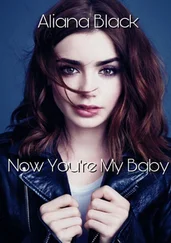Bolton, J. - Now You See Me
Здесь есть возможность читать онлайн «Bolton, J. - Now You See Me» весь текст электронной книги совершенно бесплатно (целиком полную версию без сокращений). В некоторых случаях можно слушать аудио, скачать через торрент в формате fb2 и присутствует краткое содержание. Год выпуска: 2011, Издательство: Transworld Digital, Жанр: Старинная литература, на английском языке. Описание произведения, (предисловие) а так же отзывы посетителей доступны на портале библиотеки ЛибКат.
- Название:Now You See Me
- Автор:
- Издательство:Transworld Digital
- Жанр:
- Год:2011
- ISBN:нет данных
- Рейтинг книги:4 / 5. Голосов: 1
-
Избранное:Добавить в избранное
- Отзывы:
-
Ваша оценка:
- 80
- 1
- 2
- 3
- 4
- 5
Now You See Me: краткое содержание, описание и аннотация
Предлагаем к чтению аннотацию, описание, краткое содержание или предисловие (зависит от того, что написал сам автор книги «Now You See Me»). Если вы не нашли необходимую информацию о книге — напишите в комментариях, мы постараемся отыскать её.
Now You See Me — читать онлайн бесплатно полную книгу (весь текст) целиком
Ниже представлен текст книги, разбитый по страницам. Система сохранения места последней прочитанной страницы, позволяет с удобством читать онлайн бесплатно книгу «Now You See Me», без необходимости каждый раз заново искать на чём Вы остановились. Поставьте закладку, и сможете в любой момент перейти на страницу, на которой закончили чтение.
Интервал:
Закладка:
On the first Saturday morning after my release from hospital, I made a slow and rather painful bus journey up to the South Bank. In one of the less trendy cafés, not too far from the river, I saw a thin, pale girl with dyed black hair, wearing sunglasses, even though the interior was quite dark. She didn’t look up as I approached her table, but I noticed a group of teenagers near by had spotted her. They were whispering to each other and I wondered how often she had to put up with that sort of crude and insensitive attention. The last couple of days, I’d learned a lot about how it felt to be stared at for the wrong reasons.
‘Hi,’ I said, when I was close enough. Emma Boston looked up and pushed her sunglasses on to the top of her head.
‘Fuck, you look rough,’ she said. Then she suddenly grinned at me, showing surprisingly white teeth for a heavy smoker.
‘Sit down,’ she said. ‘Join the freak show.’
I sat. I’d never seen her smile before.
‘You OK?’ she asked me.
I nodded. ‘Getting there.’
The waitress came over and I ordered coffee and cheese on toast. Emma asked for a refill.
‘I liked that article you wrote,’ I said, when we were alone again. I wasn’t bullshitting or flattering her. The piece based on the interview she’d done with me in hospital, and a subsequent one with Tulloch, had appeared in the features section of one of the broadsheets two days after my night in the Thames. It had gone beyond simple reporting to ask some fairly basic questions about what drives men to kill violently.
‘I’m a good journalist,’ she said, almost defiantly.
‘I know,’ I said. ‘Thanks for keeping my name out of it.’
She gave a little nod. ‘So what’s new?’ she asked me. ‘I take it you didn’t invite me here to become your new best mate. Any progress on finding that woman Cooper was supposedly living with? His mum told me she never met her. Mind you, she hadn’t seen Sam himself for a while.’
‘Actually, it’s nothing to do with the Ripper case,’ I said, checking my watch. ‘I may have another story for you. If you’re up for a bit of controversy, that is.’
She gave a slow, sly smile. At that moment I heard the door again and turned round. Three young black girls were looking across at our table. I got up and went to meet them.
‘What happened to you?’ asked Rona.
‘Fight with a river barge,’ I said. ‘Thanks for coming. Hello, Tia.’
Rona’s twelve-year-old sister, a smaller, slimmer, even prettier version of Rona herself, smiled shyly at me.
‘This is Rebecca,’ said Rona, indicating the other girl. ‘She’s a friend of mine. She’s been through it too.’
‘It was good of you all to come,’ I said. ‘Come on, there’s someone I want you to meet.
The piece Emma wrote about Rona and her friends and the problem of gang rape in south London appeared eight days later. The front page of the Sunday Times review section showed a picture of a young black girl staring sadly out across the Thames. It was a library shot – all the girls who’d contributed to Emma’s story remained anonymous – but it spoke volumes about being young, black, female and afraid in London.
The accompanying story pulled no punches and certainly didn’t make for comfortable Sunday-morning reading. The Met weren’t criticized as such, Emma had spoken to the head of the Sapphire Units and had included her comments, but the article did ask significant questions about whether the authorities were letting down vulnerable sectors of society, simply by refusing to confront uncomfortable truths.
Shortly after it appeared, Emma phoned to tell me that the Sunday Times had commissioned a follow-up story, this time talking to community leaders and schools. There was even talk of the article being submitted for an award.
I started to get something of a social life during the last few days of September. The day after the inquest into Amanda Weston’s death, the team insisted I join them bowling and to my amazement I didn’t argue. My ribs weren’t up to active participation but I sat at the side and tried not to laugh too much.
A few days later, we went for a curry in a little café off Brick Lane where you have to take your own beer. That time Joesbury joined us, his arm still in a sling. He didn’t speak to me all evening, but more than once, when I looked up, I caught his eye. And I couldn’t help wonder whether the brown bear and I might find ourselves with company one of these nights.
And then, on 1 October, over a hundred years after Elizabeth Stride died in the yard behind Berner Street, my happy new existence came to an abrupt end.
49
Monday 1 October
CHARLOTTE BENN IS LYING ON THE KING-SIZE BED OF the master bedroom. The wrong way round. Her feet, still in the shoes she was wearing when she answered the door, are on the pillow. Her husband’s pillow. He won’t like coming home and finding it dented. Charlotte had made the bed already, pulling the bottom sheet tight at the corners, smoothing out creases, plumping up the quilt and pillows, folding the throw, arranging the silk cushions carefully. She’s going to have to do it all again when this is over.
‘Can I sit up?’ she asks.
‘No,’ replies the voice.
‘I think I’m going to be sick,’ she says.
No answer.
‘This throw won’t wash,’ Charlotte says. ‘I’ll have to dry-clean it.’
‘Nice room,’ says the voice. ‘Did you do it yourself?’
‘Yes,’ says Charlotte, although she hadn’t. She’d used a very expensive interior designer that one of her friends had recommended. ‘I chose everything,’ she continues. ‘I spent weeks on it.’
‘Nice use of neutrals,’ says the voice in her ear. ‘Are they your favourites? Neutral colours, I mean?’
‘There’s money in the house,’ says Charlotte. ‘In the safe downstairs. A couple of hundred pounds, I think. I can tell you the combination. It’s six, seven, three …’ She can hear a rustling noise directly behind her. ‘What are you doing?’ she asks.
‘I wanted to ask you about morality,’ the voice says. ‘Is it absolute, do you think? Or can it shift? Don’t move, or I’ll blow your head off.’
Charlotte forces herself to remain still. ‘I don’t know what you mean,’ she says. ‘I think you’re confusing me with someone else.’ She’s starting to cry and wonders if mascara will stain the throw.
‘If someone you loved committed a terrible crime,’ says the voice, ‘what would you do? Would you stand by them, no matter what the consequences to anyone else?’
‘I don’t know what you want with me.’ Tears are trickling down the side of her face, the first has reached her ear. She wants to brush it away but daren’t move.
‘This really is a nice room,’ says the voice. ‘Although I’m not fond of neutrals myself.’
As fingers wrap themselves around Charlotte’s hair, music starts to play, an old-fashioned tune that Charlotte thinks she knows but can’t quite place. In spite of the threat, she starts to pull herself up and then stops. Something is touching her throat. She glances to one side, sees the white-clad arm bent at the elbow.
‘I have to be somewhere in an hour,’ whimpers Charlotte, and the knife at her throat trembles against her skin.
‘Yes, so do I,’ says the voice. ‘And they say time flies when you’re having fun.’
The knife tip presses deeper. Charlotte is panting. Suddenly her body can’t suck in air fast enough.
‘Red’s always been my favourite colour,’ says the voice, as Julie Andrews starts to sing about raindrops. ‘I think what this room needs is a few accents of red.’
50
Читать дальшеИнтервал:
Закладка:
Похожие книги на «Now You See Me»
Представляем Вашему вниманию похожие книги на «Now You See Me» списком для выбора. Мы отобрали схожую по названию и смыслу литературу в надежде предоставить читателям больше вариантов отыскать новые, интересные, ещё непрочитанные произведения.
Обсуждение, отзывы о книге «Now You See Me» и просто собственные мнения читателей. Оставьте ваши комментарии, напишите, что Вы думаете о произведении, его смысле или главных героях. Укажите что конкретно понравилось, а что нет, и почему Вы так считаете.
